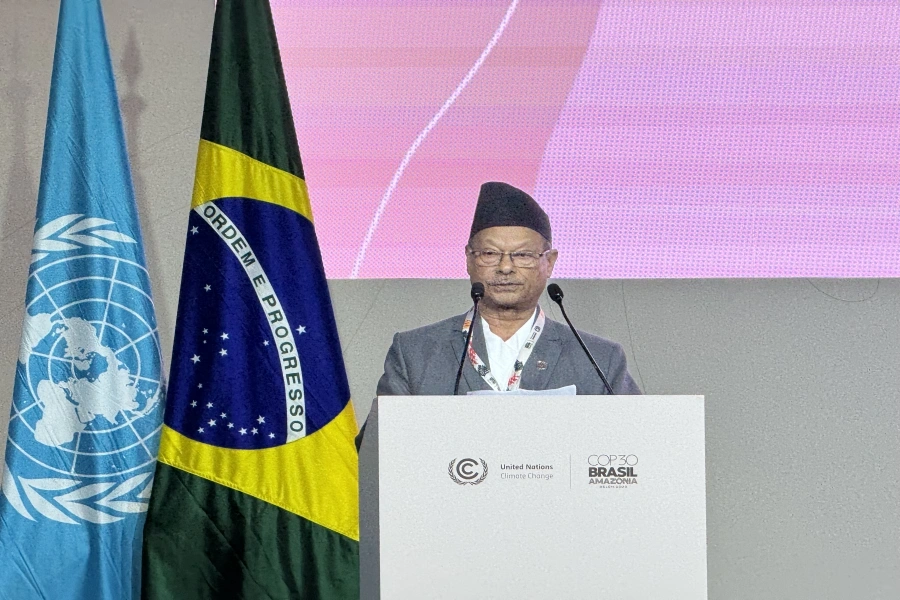KATHMANDU, Dec 10: Nepal has renewed calls for climate justice to ameliorate the harsh suffering that climate change has brought to the lives of Nepali people.
In her verbal statement at the ongoing oral proceedings of the International Court of Justice, Foreign Minister Dr. Arzu Rana Deuba on Monday said the rapid effects of global warming and climate change were threatening Nepal's snow-capped mountains and glaciers.
Despite Nepal’s snow-capped mountains and glaciers playing a crucial role in maintaining climate balance, supporting ecosystems, and preserving biodiversity, they were increasingly threatened by the rapid effects of global warming and consequent climate change, the Minister told the public hearings – Nepal's first ever participation at the the ICJ – on the ‘Obligations of States in respect of Climate Change’.
“We are having to bear the brunt of the impacts of climate change in a disproportionate manner," according to a press statement issued by the Foreign Ministry. "In fact, we are paying for a bad ‘karma’ we did not create. We have been penalized for the mistakes we never made, for the crimes we never committed,” she added.
SHIFT for Our Planet: Youths urge authorities to make climate j...

Dr. Deuba underscored the vulnerability Nepal faced due to its geographical circumstances and relatively low level of development and made a strong case for climate justice to ameliorate the harsh suffering the climate change has brought to the lives of Nepali people.
Speaking on human rights law-related obligations of States in connection with climate change, Dr. Deuba highlighted Nepal’s position that many vulnerable States were not able to meet the obligations under international human rights law as the actions and emissions arising from beyond their territory also had effects on the specific rights of their citizens.
Nepal’s position on the other aspects of State obligations regarding climate change was presented by Udaya Raj Sapkota, secretary of the Ministry of Law, Justice and Parliamentary Affairs. Sapkota underscored that the general obligation to prevent transboundary harm, based on the concept of due diligence, was a well-established rule in international law. He added that such an obligation was applicable in the context of climate change as well.
He further clarified Nepal’s position on the ‘differentiated’ nature of obligations based on treaties related to climate change. He also called for considering specific vulnerabilities of landlocked and mountainous countries as well as overall economic capabilities and constraints, while applying the principle of differentiated obligations.
Nepal also stressed the duty of assistance where the developed countries have an obligation under the Paris Agreement to provide financial resources for assisting developing countries in mitigation and adaptation. “Under this duty of assistance, developed states have an obligation to support the neediest among the developing countries – the least developed, small islands, and mountainous countries,” he said.
In Nepal’s third and last oral statement, Suvanga Parajuli, under-secretary at the Ministry of Foreign Affairs, spoke on the legal consequences when the States fail to uphold the obligations regarding climate change. Parajuli refuted the characterization of the climate crisis as a “collective tragedy where no specific responsibility could be assigned”.
He argued that the responsibilities could be established based on the customary international law on the responsibility of states regarding internationally wrongful acts. He added that the developed countries have a collective duty to compensate for the harm caused by their historic emissions given the composite nature of state responsibility in climate change. “What countries like Nepal are calling for is not mere handouts or charity, but compensatory climate justice,” he said.







































